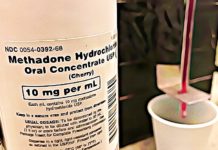Drug rehab is the process of psychotherapy or medical treatment for dependence on psychoactive substances like marijuana, prescription medications, and street drugs like heroin, cocaine, or amphetamines. The process involves identifying, treating, and preventing the underlying issues that create the substance abuse in the first place. In addition, drug rehab provides a new start in an attempt to prevent future substance abuse and dependency from forming in the future. There are various types of drug rehab including residential, outpatient, inpatient, or in any combination thereof.
In some drug rehab centers, the individual will need to undergo a series of sessions, usually one or more times a week, aimed at identifying their needs and helping them overcome the addiction. In some cases, the individual may have to undergo several sessions before they are considered “cured”. The treatment may include medication, counseling, group therapy, or group education, depending on the type of addiction that needs addressing. This type of rehab often lasts up to a year, sometimes even longer if it is a serious case. It is also important to note that not every type of drug abuse requires the same kind of treatment and that each individual will require different levels of therapy based on their particular needs and symptoms.
Some drugs that may need addressing include alcohol, crack cocaine, methamphetamine, crack-cocaine, marijuana, and heroin. Many times, a patient with one of these problems may also have a psychological problem or disorder, such as bipolar disorder, depression, anxiety, post-traumatic stress disorder, eating disorders, or compulsive behavior. If the patient has an addiction to an opiate such as pain relievers or heroin, they may also require intensive therapy to address their underlying psychological problems. Sometimes the treatment center will offer programs for those who have been abusing alcohol or drugs for years but have not been able to quit. Residential treatment is generally for those who are unable to live independently for one reason or another. They may need to stay in a group setting to deal with their addiction and learn to live with their problem in a controlled environment. An outpatient drug rehab is often used for those who cannot handle the isolation that may be involved in a residential rehab program.











